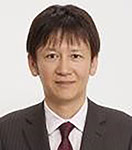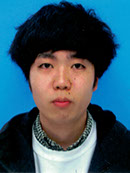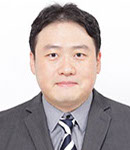
Tutorials
Tutorial 1



Blockchain and its Security Risk
Kazumasa Omote, Mitsuyoshi Imamura and Teppei Sato (University of Tsukuba)
Date & Time (tentative)
10:30-12:30 February 20th (Thursday), 2020.
Abstract
A blockchain is an open, distributed ledger, which is growing list of records, called blocks, that are linked using cryptography. A blockchain is resistant to modification of the data and also managed by a decentralized peer-to-peer network. The most famous application is cryptocurrency. However, it has security risk from the viewpoint of network and system. For example, in Japan, cryptocurrency exchange Coincheck loses 58 billion in hacking attack. Several attacks against blockchain may decrease the value of blockchain systems. It is thus important to know the security risk of blockchain based on the truth by broad-range empirical analysis.
In this tutorial, we start with a brief background of blockchain, including how blockchain and cryptocurrency work and the overview of their security risk. Then we present some specific security risks such as network analysis of blockchain and cryptocurrency. The audience is expected to obtain actual and helpful knowledge about blockchain mechanism and its security risk when you use or implement the decentralized blockchain system.
Bio
Kazumasa Omote, Associate Professor, University of Tsukuba. He received his Ph.D. degrees in information science from Japan Advanced Institute of Science and Technology (JAIST) in 2002. He worked at Fujitsu Laboratories, LTD in 2002-2008, and was engaged in research and development for network security. He was a research assistant professor at JAIST since 2008, and associate professor at JAIST since 2011. He has been an associate professor at University of Tsukuba since 2016. His research interests include applied cryptography, network security and blockchain security. He was General Co-Chair of International Conference ISPEC 2018. He is a member of IEICE and IPSJ.
Mitsuyoshi Imamura, PhD Student, University of Tsukuba He received an M.E degree from the Japan Institute of Science and Technology (JAIST). He has worked as an engineer for Hewlett-Packard Japan Ltd. (Hewlett Packard Enterprise) and Microsoft Japan Co., Ltd. Currently, he is a quantitative analyst at Nomura Asset Management Ltd. His research focuses on network security analysis for systems based on blockchain which takes advantage of the network structure and traffic data mining. In recent research, he proposed an analysis using peer node information and darknet traffic data.
Teppei Sato, Master's Degree Student, University of Tsukuba His research focuses on cyber security related to blockchain. He got a 3rd prize at LONGHASH Blockchain Hackathon 2018, with Mitsuyoshi Imamura.
Tutorial 2

Explainable Artificial Intelligence (XAI)
Jaesik Choi (KAIST)
Date & Time (tentative)
14:00-17:40 February 20th (Thursday), 2020.
Abstract
Explainable and interpretable machine learning models and algorithms are important topics which have received growing attention from research, application and administration. Many advanced visual artificial intelligence systems are often perceived as black-boxes. Researchers would like to be able to interpret what the AI model has learned in order to identify biases and failure models and improve models. Many government agencies pay special attention to the topic. In May 2018, EU enacted the General Data Protection Regulation (GDPR) which mandates a right to explanation from machine learning model. This tutorial will provide basic knowledge and practice to the audience.
Bio
Jaesik Choi is an associate professor of Graduate School of Artificial Intelligence at KAIST since September 2019. He had been the Rising-Star Distinguished associate professor in the School of Electrical and Computer Engineering at UNIST (Ulsan, Korea) and an affiliate researcher of the Lawrence Berkeley National Laboratory (the Berkeley Lab) until August 2019. He had been an assistant professor at UNIST from July 2013 to August 2017. He was a Computer Scientist Postdoctoral Fellow of Computational Research Division at the Berkeley Lab. His research focuses on learning and inference with large scale, complex systems, explainable machine learning models and spatio-temporal data analysis. He received his Ph.D. in Computer Science from University of Illinois at Urbana-Champaign (2012) and received B.S. degree in Computer Engineering from Seoul National University (2004).
Tutorial 3


Detecting Communities and Anomalies in Large Real-world Graphs
Sungsu Lim (Chungnam National University) and Kijung Shin (KAIST)
Date & Time (tentative)
14:00-17:40 February 21st (Friday), 2020.
Abstract
Graphs are a universal language for describing interactions in a variety of complex systems (e.g., the society, brains, and communication systems), and analyzing such graphs is crucial to understand and predict these complex systems. Communities (i.e., groups of densely-connected nodes) and anomalies, are key components of graphs, and identifying them in given graphs often leads to a much better understanding of the graphs. In this tutorial, we offer a comprehensive overview of the techniques for detecting communities and anomalies. Specifically, we first introduce basic and advanced techniques for detecting non-overlapping, overlapping, and multi-attribute communities, and then we introduce those for detecting anomalies based on features, spectral properties, and dense sub-structures. Additionally, we present a number of applications in a wide range of domains, including social media, e-commerce, and computer security.
Bio
Sungsu Lim is an Assistant Professor in the Department of Computer Science and Engineering at Chungnam National University. He is also an advisor of NOTA Incorporated. He received his Ph.D. from the Graduate School of Knowledge Service Engineering at KAIST in 2016. He won the Qualcomm Innovation Award 2016. His research interests include mining and modeling large-scale social and information networks. More details can be found at http://sungsulim.com.
Bio
Kijung Shin is an Assistant Professor in the Graduate School of AI and the School of EE at KAIST. He received his Ph.D. from the Computer Science Department at Carnegie Mellon University in 2019. He has published 25 referred articles in major data mining venues, and he won the best research paper award at KDD 2016. His research interests span a wide range of graph mining topics, with a focus on designing scalable algorithms for large-scale graphs. More details can be found at http://kijungshin.com
Tutorial 4

Big Data - AI Integration
Steven Euijong Whang (KAIST)
Date & Time (tentative)
14:00-17:40 February 22nd (Saturday), 2020.
Abstract
Software 2.0 is a fundamental shift in software engineering due to the success of Artificial Intelligence (machine learning) using Big data. Previous software development involved implementing specific features and testing the code. In machine learning, data is on par with code, and models are the new software. Developing a model involves data collection, analysis and validation, followed by model training, analysis, validation, and serving. Several companies have developed solutions to make such end-to-end machine learning easy to for everyone. For example, Google and DataBricks are developing and opensourcing TensorFlow Extended (TFX) and MLflow, respectively. This tutorial focuses on data management research challenges that occur in Software 2.0 and their current solutions.
Bio
Steven Euijong Whang is an assistant professor at the School of Electrical Engineering, KAIST. His research interests are Big Data - AI Integration, Big Data Analytics, and Big Data Systems. Previously he was a Research Scientist at Google Research from Dec. 2012 to Jan. 2018 and co-developed the data infrastructure of the TensorFlow Extended (TFX) machine learning platform. Prof. Whang received his Ph.D. in computer science in 2012 from Stanford University and his B.S. in computer science from KAIST in 2003. He is a recipient of the Google AI Focused Research Award in 2018, the first in Asia. He is also an IEEE senior member.
ⓒ Copyright 2020 KIISE – All Rights Reserved.
[KIISE] Korean Institute of Information Scientists and Engineers
#401 Meorijae Bldg., 76, Bangbae-ro, Seocho-gu, Seoul 06704, Korea
Phone: +82-2-588-9240 | Fax: +82-2-521-1352 | Email: ejmoon@kiise.or.kr | Homepage: www.kiise.or.kr
Business Registration Number: 114-82-03170
SCMember-board
